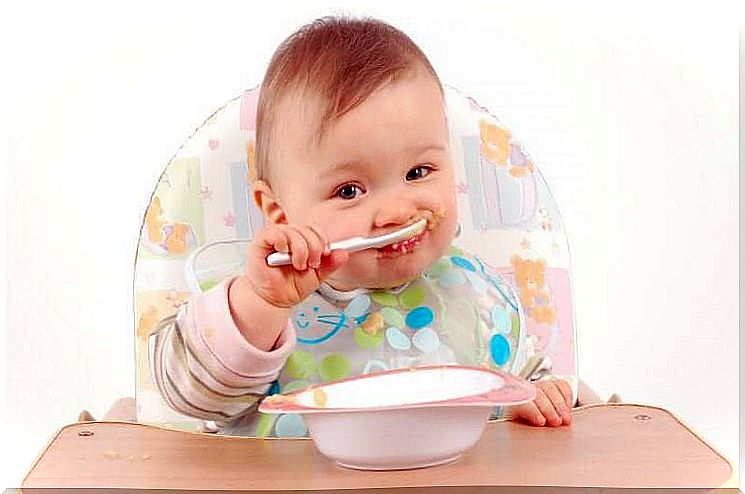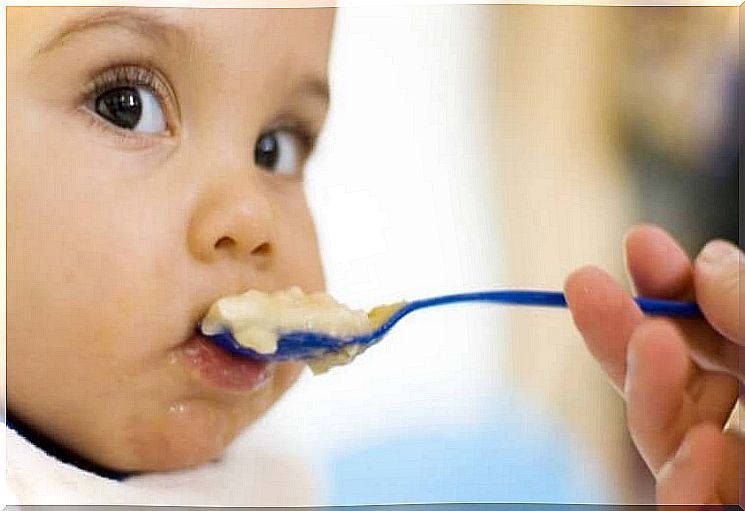When To Introduce Cereals In The Baby’s Diet? – Being Parents

Motherhood is both a beautiful and intimidating experience. Unknowns are the order of the day, and the mother wonders if the child is sleeping well, how to take care of his health, which includes knowing when to introduce cereals into the baby’s diet, among other things.
Feeding the baby will always be a very sensitive issue, especially for first-time mothers. Solid foods, grains, juices, soups, and creams are all foods rich in vitamins and nutrients necessary for baby’s growth.
When is the right time to start giving them to your baby? Is there a particular way to prepare them? How to introduce cereals in the diet of your baby?
The general recommendation is that the baby be fed only breast milk until the age of 6 months. It is the one that provides all the nutrients that the infant needs.
Subsequently, other types of food can be offered and thus increase the variety of flavors and textures in their daily diet. For this, cereals are an excellent option.
Cereals in baby food
Grains are a staple food, high in fiber and carbohydrates . These nutrients help babies’ bodies to develop and function properly. To enjoy their benefits, it is advisable to know how to offer them to your little ones.
How and when should you feed your baby cereal?
When your baby is 8 or 9 months old and can sit up on his own, it’s time to give him space to eat cereal however he wants, always under adult supervision, of course.
At that time, he will experience feeding himself with his hand; he will feel the texture of the grain in his hands, then in his mouth. In addition, over the days, the baby will get used to the texture and variety of flavors more and more.

Always remember that this experience should be pleasant for the baby. In addition, another aspect to consider is that your body accepts grains; we need to be very careful with any allergic reaction.
To facilitate the consumption of cereals, a good option is to give them in the form of porridge; to prepare them, you can mix the cereals with breast milk. Finally, the small spoon is the appropriate utensil to eat them. In this step, you have to be patient; a spoonful a day is a big step forward.
Cereals with and without gluten
It is necessary to know the components of cereals given to the infant. There are a wide variety of them today, including those that contain gluten and those that do not.
Also, it is important to keep in mind that not all children tolerate gluten. This intolerance, also known as celiac disease, causes an inflammatory immune response in the gut when it eats foods that contain it.
Celiac disease has an incidence rate of 1 in 1,000 children and is usually inherited. However, it can occur even if there is no family history.
Tips for Feeding Cereal to Babies
By following certain guidelines, eating new foods such as grains will be easier and more tolerable. Here are some practical tips to help you get through this new phase of your child’s life smoothly:
Before the age of 6 months, no gluten
The goal is to avoid any allergic reaction. You can offer him cereals like rice or corn, but at this age we have to put aside wheat and its derivatives. However, it can be given when the child is a little older.
To introduce it, you can start with a small dose of cereal with gluten in the bottle of milk. If the reaction is good, it is advisable to increase the quantity little by little, always being careful of any counterproductive reaction.
Cereal porridge containing gluten
Once out of the bottle, the porridge becomes more substantial and richer in starch and protein. The baby is completely satisfied with this new nutritional contribution; it is very likely that he will be full and will not ask for more food.
When it comes to these foods, it is important not to add sugar, cocoa, honey, salt or other substances. The more natural, the better.

Wheat and barley
Wheat provides energy, prevents constipation, and is rich in minerals and B vitamins. It can be given as porridge or very soft cookies. All this, as we have already said, from the age of 6 months.
On the other hand, barley is very easy to digest. It is rich in vitamins of groups PP, E and B (folic acid). Like wheat, it can be offered to the child in the form of porridge, cereal bread or flakes.
In conclusion, cereals are an essential part of the baby’s diet. The introduction process is slow, but gives good results.
Don’t try to speed up the steps your baby needs to take. Try to pay attention to the amount of food you give your baby based on his age. By being responsible in feeding your baby, you will achieve optimal growth without complications.









